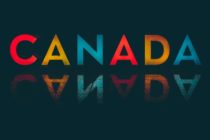Understanding the Importance of a Scholarship Thank You Letter
Securing a scholarship is indeed a pivotal accomplishment in a student’s academic journey. Beyond the elation and relief of not having to worry about tuition fees, students often overlook another important aspect: acknowledging the benefactor’s generosity through a Scholarship Thank You Letter. This holds significance in showcasing your gratitude and establishing a relationship with your financial sponsor, adding a personal touch that goes beyond the transactional nature of scholarship awards.
A Scholarship Thank You Letter conveys respect and recognition for your supporter’s investment in your future. When a benefactor chooses to contribute towards your scholarship, they’re doing so with the faith that you will go on to do something meaningful with the opportunity. The recipient must reciprocate this gesture through a heartfelt written acknowledgment. Additionally, expressing gratitude correctly can reflect positively on you, paving the way for future opportunities and creating long-term relationships that can bolster your academic and career pathways.
Crucial Elements to Include in Your Gratitude Note
Crafting a heartfelt, genuine gratitude note requires careful attention to several key elements. First and foremost, acknowledgment of the scholarship received is paramount. It is essential to specify the exact scholarship that you are thanking your benefactor for. With this direct reference, it becomes clear that your appreciation is not generic but specifically tailored to the unique aid you’ve received.
The second crucial element is sharing personal growth and learning experiences made possible because of the scholarship you received. Remember, scholarships are not just financial aid. They also symbolize opportunities for students to attain their educational dreams. Hence, it’s important to emphasize the impact the scholarship had on your studies and your life in general, highlighting milestones and achievements accomplished due to this generosity. Drawing attention to these factors fosters a connection with your benefactor and sends the powerful message of how their contribution made a difference.
The Perfect Structure for an Effective Scholarship Thank You Letter
Writing an effective Scholarship Thank You Letter involves more than simply saying “Thank you for the scholarship”. The structure of the letter plays a significant role in conveying your appreciation genuinely and professionally. The letter can be categorized into three sections, the introduction, body, and the conclusion. In the introduction, it is crucial to express gratitude unequivocally and specify the scholarship received. A personalized touch, such as mentioning the impact of the financial assistance, makes the message warmer.
Proceeding to the body of the letter, the recipients appreciate the effort to share your dreams and objectives. Let them understand the difference their help is making towards your academic pursuits and future career. While brevity is a virtue, ensure you adequately detail your plans. Remember, your scholarship providers vested in you and your future, express a commitment to make them proud. The conclusion, then, ideally reiterates appreciation, includes well wishes for the donors, and ends with a professional sign-off. Ensure you paint a clear and sincere picture throughout the letter and include all essential elements.
Mastering the Art of Sincere Appreciation in Your Letter
Sincere appreciation in a scholarship thank you letter goes beyond merely listing down the benefits you have received from the aid. It requires an empathetic expression of gratitude, giving the benefactors a clear picture of the positive impact their generosity has made on your life and educational journey. Creating a vivid narrative around this point, rather than stating the facts plainly, will ignite a sense of pride and fulfillment in them. Stories touching on how you have utilized or plan to utilize the scholarship are quite effective and relatable.
Paying attention to subtleties is essential when trying to master the art of sincere appreciation. The tone of your letter should reflect your genuine gratitude without needless hyperbole or overly emotional language. Avoid grand, sweeping statements and instead focus on personal, honest expressions of thankfulness. Remember, the more real you sound, the more your sincerity shines through. As a rule of thumb, maintain a professional yet warmly appreciative tone throughout, keeping the benefactor’s perspective in mind. Always strive to make them feel valued for their contribution.
The Role of Proper Grammar and Punctuation in Your Thank You Letter
Ensuring an error-free scholarship thank you letter demonstrates professionalism and respect towards your benefactor. It indicates that you have taken the time and effort to compose a well-thought-out and structured letter, reinforcing their choice to award you. The correct use of grammar enhances clarity, reducing any potential confusion in your message. You are effectively simplifying the reader’s task, making your letter more pleasant to read.
Punctuation, on the other hand, plays a significant role in conveying the appropriate tone in your letter. Effective punctuation showcases the pauses and emphasis in your writing, much like how it would be in an actual conversation. For instance, using a comma can indicate a brief pause or separate items in a list, while a period signals the end of a statement. By mastering these elements, you can confidently craft a thank you letter that resonates with your scholarship provider and leaves a lasting impression.
Personalizing Your Scholarship Thank You Letter
Crafting a personalized thank you letter goes beyond a generic show of gratitude. It requires the ability to genuinely express your appreciation uniquely. By sharing your aspirations, personal stories, or challenges you have encountered during your academic journey, you create a bridge of connection with your benefactors, allowing them to see the impact of their generosity. It’s more than just words on a piece of paper; it’s an opportunity to let the benefactor witness the ripple effect of their kind gesture in your life.
Additionally, infuse your personality into the letter. Show genuine enthusiasm and freshness in your writing style. Avoid using cliches or overly-used phrases, instead, aim to be original and sincere. Stand out through your authenticity and let your individuality shine through. Remember, your benefactors read numerous thank you letters, so make yours unique and rememberable by injecting your own personal style and tone. Your letter should reflect who you are, thus making it a truly personal testament of gratitude.
Sample Texts to Inspire Your Scholarship Thank You Letter
In the first paragraph, let’s heed the elegance of simplicity. Picture this, “Dear [Scholarship Committee], I am overwhelmed with gratitude for the generous scholarship that I received from your organization. My future is unequivocally brighter because of it. This scholarship alleviates the financial burden of my educational costs and allows me to concentrate more fully on my studies. With this gift, I am one step closer to achieving my goal of becoming a [desired profession]. Thank you, [Your Name].”
Moving to the second paragraph, that dips into a bit more personal touch. Imagine writing: “Dear [Scholarship Committee], I cannot express how thankful I am for your belief in my potential. This scholarship is not just a financial aid, but a vote of confidence that serves as a massive motivation for me. With your generous aid, I am more energized to invest in my studies and [specific project or initiative related to studies]. I am immensely grateful for your contribution to my future. Sincerely, [Your Name].”
These texts carry the right balance of gratitude and insightful outlook on how the scholarship influences your academic and professional journey. Remember, sincerity is key and it is essential to reflect your genuine appreciation.
Mistakes to Avoid When Writing Your Scholarship Thank You Letter
One of the most common pitfalls in crafting a scholarship thank you letter is being impersonal. Writing a generic and formulaic gratitude note merely thanking the committee for the scholarship is misserved politeness. Instead, the letter should be personal, conversational and sincere. It should depict emotions, share personal stories relating to how the scholarship aids you in your academic pursuit, and specifically address the individual or organization that issued the scholarship.
Another prominent mistake is neglecting the use of proper grammar and punctuation. Many believe that since it’s a thank you note, its formality can be compromised. However, this is, in fact, a formal document and should reflect your professionalism. Poorly written letters littered with grammatical mistakes and incorrect sentences can be interpreted as a lack of seriousness or insensitivity. Therefore, meticulous attention should be paid to the language, grammar, and overall structure of the letter.
Sending Your Scholarship Thank You Letter: Best Practices
Promptness in sending your thank you letter reflects your gratitude and professionalism. Aim to send the letter within a week upon receiving the scholarship. This swift reply not only expresses your immediate gratitude but also demonstrates your respect and value towards the scholarship provided.
The method of delivery also plays an important part. Understand the preferences of the scholarship foundation. If they prefer digital communication, send a well-typed, formal email. However, for those who appreciate traditional methods, a handwritten, posted letter can create a significant impact. Remember to keep a copy for your reference.
Revising and Proofreading Your Scholarship Thank You Letter
Before rushing to send your letter, take your time to revise and proofread it. This step may seem menial but, in fact, it plays a critical role in the process of showing appreciation professionally. Revision ensures that your letter is logical, well-structured, and notably free of any repetitive or irrelevant information. It also allows you to assess if you have effectively expressed your gratitude and potentially strengthen your message.
Proofreading, on the other hand, helps you to detect and correct any grammatical, spelling, and punctuation errors that may have occurred during the writing process. An error-free letter not only demonstrates your attention to detail and respect for the reader but also adds to your credibility as a grateful scholarship recipient. Hence, don’t overlook these essential steps; they make a significant difference in the overall quality and perception of your thank you letter. Remember, you aim to leave a positive and lasting impression.







